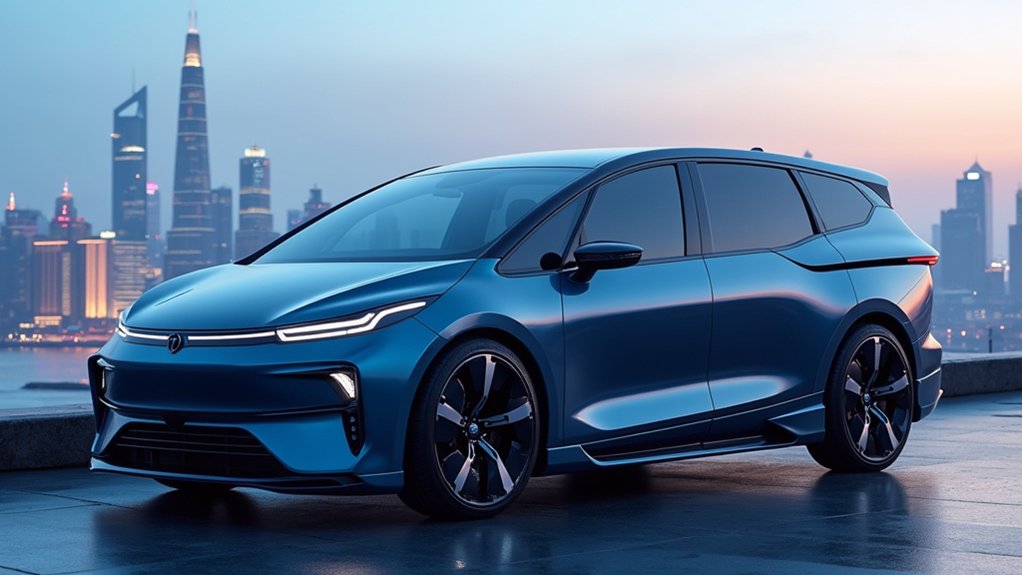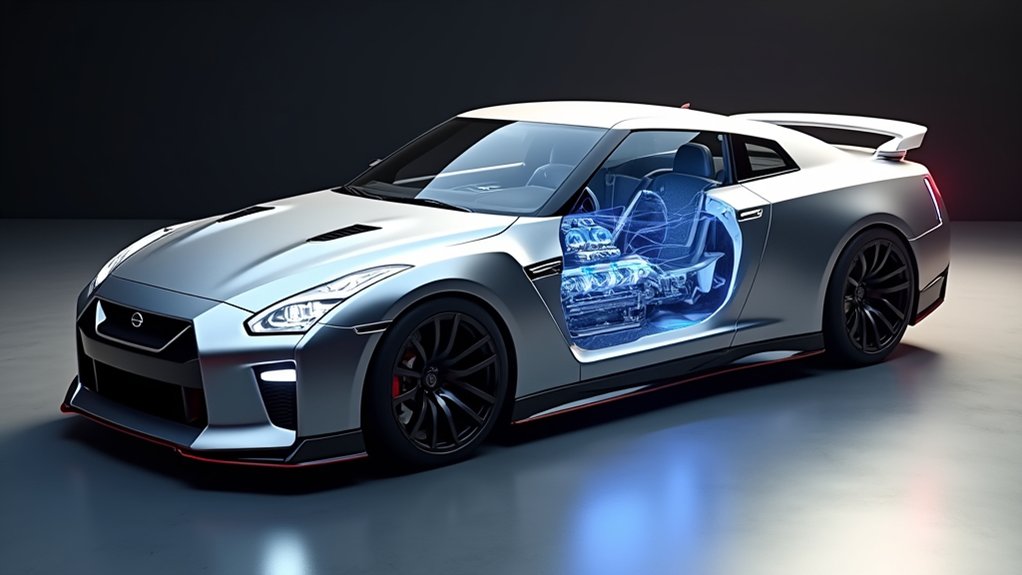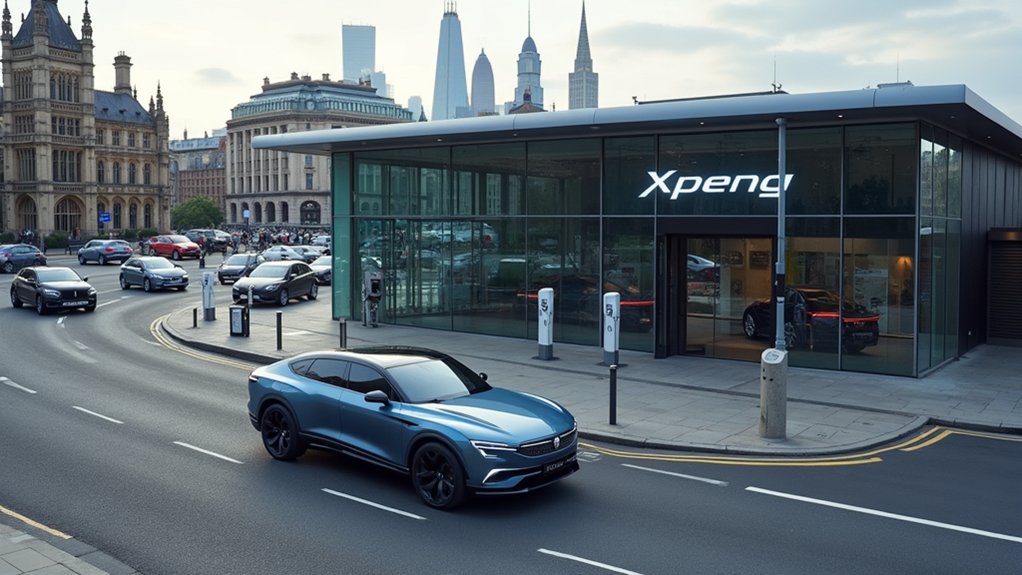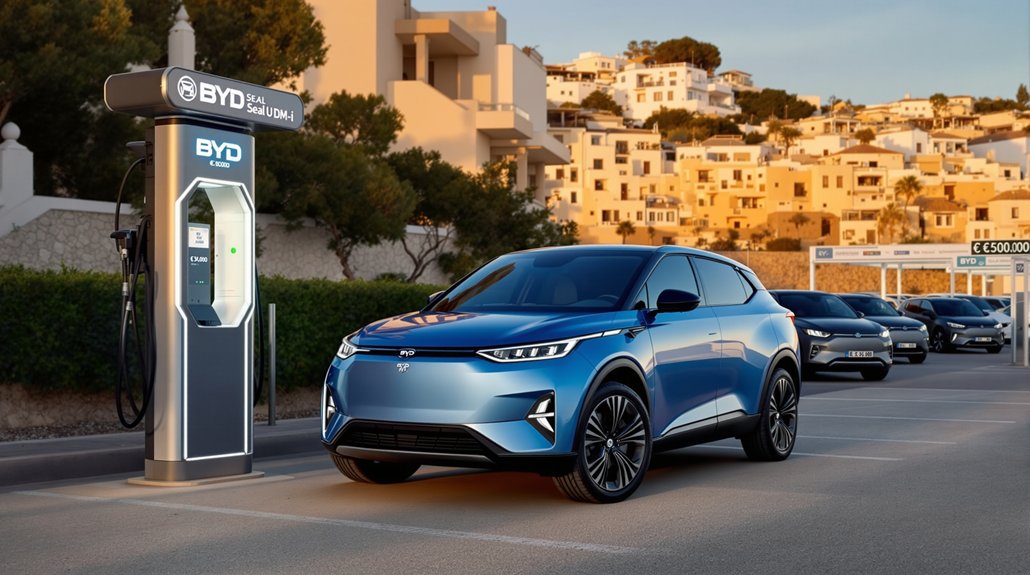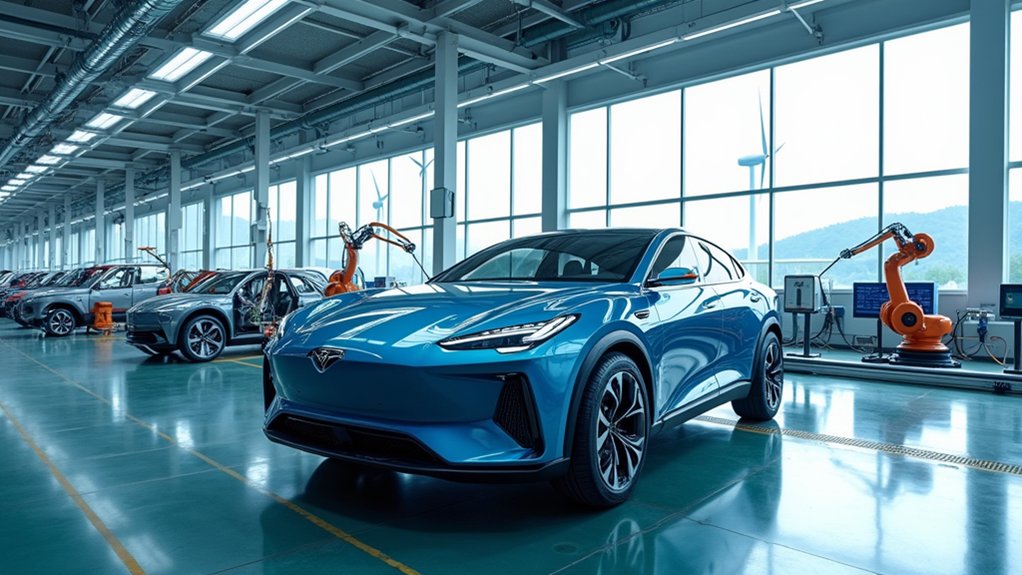While most automotive markets struggle to reach double-digit electric vehicle adoption, China has emerged as the undisputed global powerhouse in the EV industry. The numbers tell a staggering story: China produced nearly 70% of global EV sales in 2023, reaching an impressive 9.5 million vehicles, and is projected to hit 10 million units in 2024. I’ve watched this market transform from a mere curiosity to a dominant force in just a few years.
What’s particularly remarkable is how China has fundamentally altered the EV landscape. With plug-in electric vehicles representing 47.9% of total automotive sales in 2024—up from just 6.3% in 2020—China has achieved what Western markets consider a distant goal. The domestic ecosystem supporting this growth is extensive, with over 200 EV manufacturers operating within the country, creating a hotbed of innovation and competition.
Chinese firms have leveraged their thorough supply chain advantages to establish a formidable 20% cost advantage over Western competitors. This edge stems from lower logistics costs, reduced labor expenses, and exceptional domestic supply chain integration. The New Energy Vehicle market has seen ownership increase by a staggering 67.13% increase in a single year, reflecting the explosive growth of this sector. The results speak for themselves: BYD and other domestic manufacturers have claimed five of the top seven market positions, even as Tesla maintains significant production within China.
Battery technology represents the heart of China’s EV dominance. The country controls over three-quarters of global battery production capacity, 70% of cathode production, and 85% of anode production. These components, representing 33-40% of an EV’s total cost, provide Chinese manufacturers with unmatched pricing flexibility. The battery industry is expected to grow from $30 billion in 2021 to an astounding $127 billion by 2027, further cementing China’s leadership in this crucial technology. BYD has emerged as a standout innovator with its Blade batteries setting new standards for cost efficiency and safety in the global market.
China’s global impact continues to expand through exports, which exceeded 1.28 million EVs in 2024. From Europe to Southeast Asia, Chinese brands are rapidly establishing footholds in both developing and mature markets.
The government’s long-term strategy, initiated in the mid-2000s, has transformed what began as energy security and industrial policy initiatives into perhaps the world’s most successful EV ecosystem—one that increasingly defines the future of global mobility.
